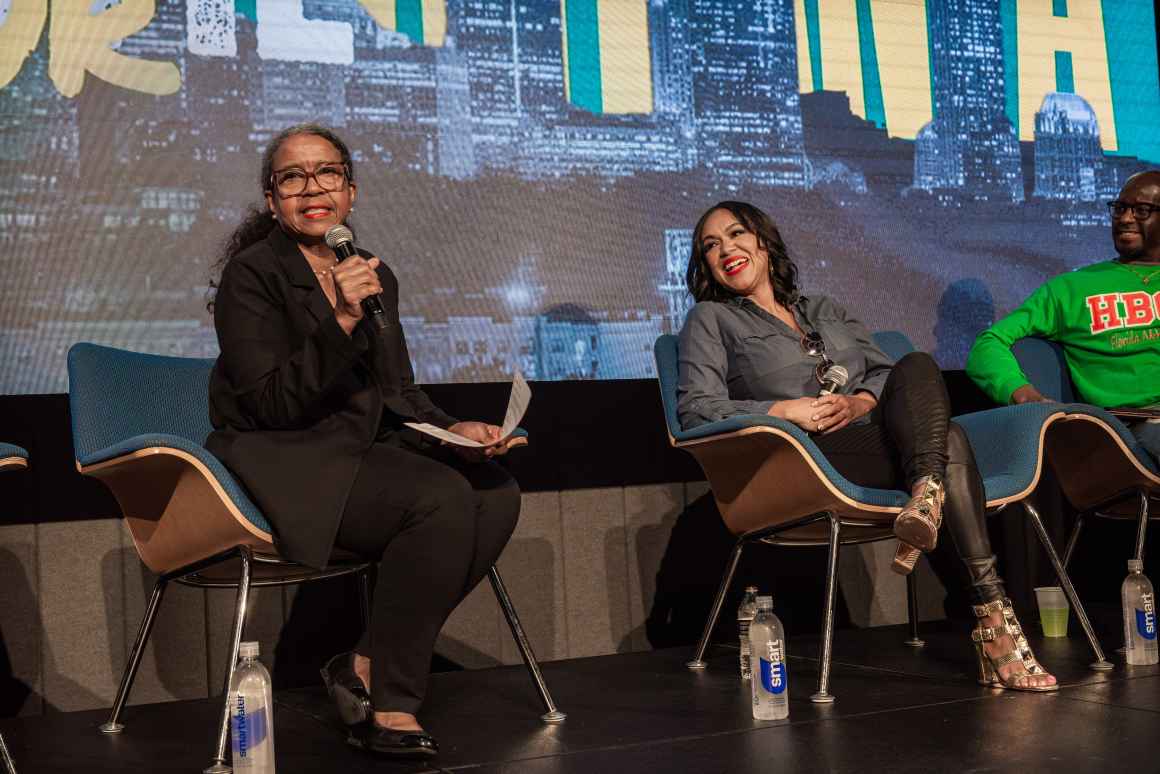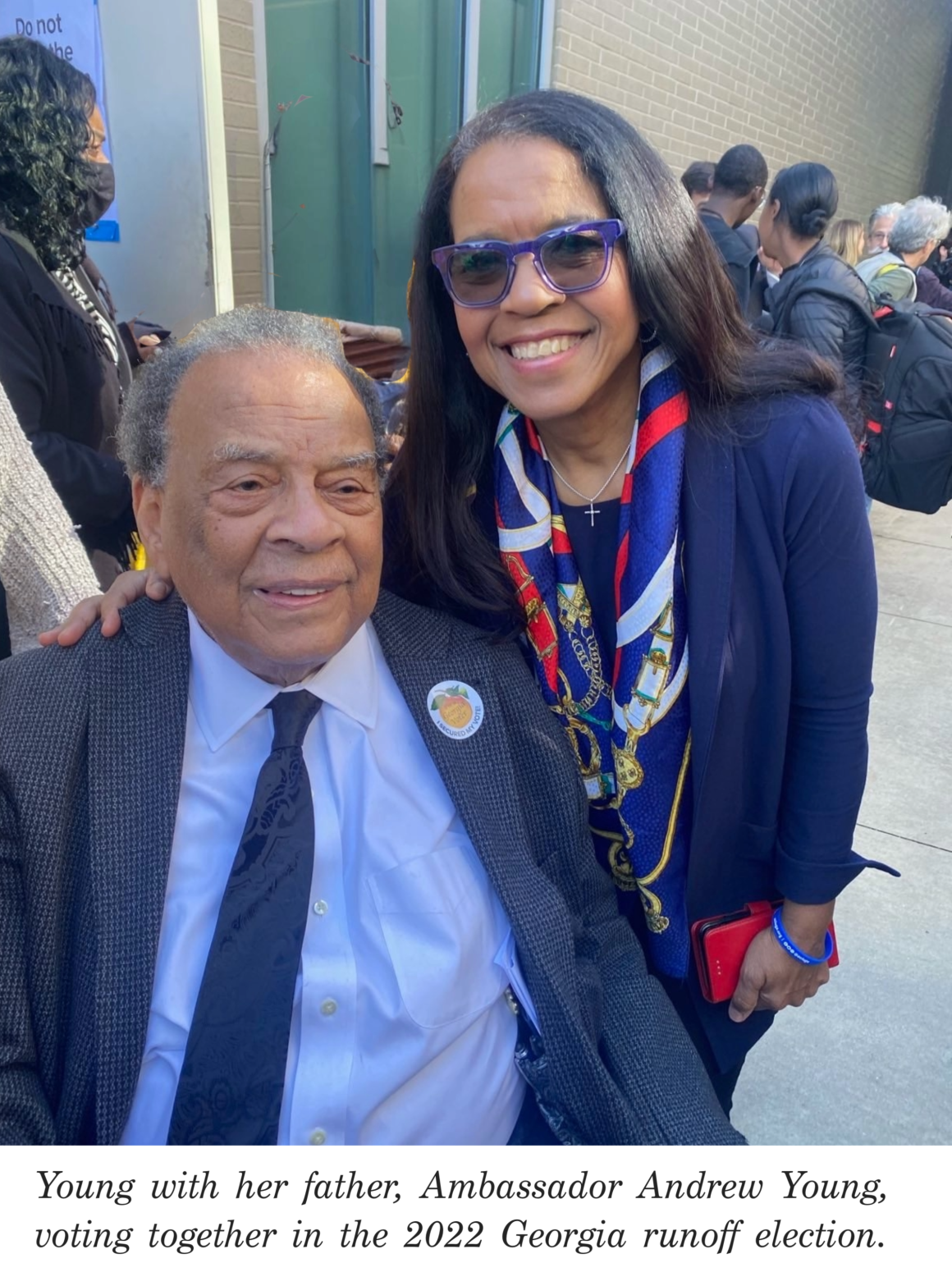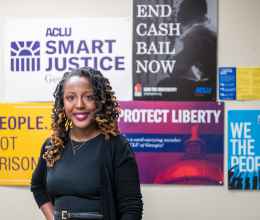Andrea Young is Executive Director of the ACLU Georgia

There is a persistent divide between people who think of voting as a privilege and people who think of it as a right,” said Andrea Young, executive director of ACLU Georgia. “Privileges are by definition not for everybody. Many Americans still think of voting as a privilege for a certain kind of person,” she said.
During this election season in particular, Young emphasizes the importance of understanding candidate policies and understanding the power of your vote.
As a young girl, Young accompanied her parents to the 1965 Selma to Montgomery march in which thousands of Americans participated to ensure that African Americans could vote in a system that was determined to prevent them from doing so. After the Voting Rights Act was passed later that year, Young accompanied her mother, knocking on doors throughout the neighborhood to see if people needed to register to vote.
“By the time I actually voted myself, I had been involved for over a decade in trying to create access to the vote for Black Americans,” Young said.
Voting Brings Change on Key Issues


The first time she was able to vote, the Vietnam War was the predominant election issue. It was one of the most divisive conflicts in American history and was the catalyst needed to finally lower the voting age to 18 from 21. The 26th Amendment passed faster than any previous amendments in U.S. history and brought 11 million new voters into the ranks.
Young was surprised then, when she moved from Washington, D.C., to Georgia, by the atmosphere of voting in the South. “There was this sense that you were under suspicion,” she said. “I think it is a much more positive experience today than 10 years ago when they passed the voter identification law, but until 1965, there were all sorts of ways people were prevented from voting … and the vestiges of that still have not gone away.”
That’s why it is more important than ever to vote, she said, concurring with Michelle Obama who noted that rich and powerful people don’t care if you don’t vote. “The people you may feel solidarity with, they are being hurt by your not voting,” Young said.
Your Vote Brings About Change for You and Others
Young went on to say that voting is why we have access to health care, why we gained and recently lost the ability to make decisions about our own bodies, why cities like Flint, Michigan, suffered a water crisis, and why Black Americans can walk on the sidewalk or shop at Lenox Square. Whatever the outcome, voting is the process through which things happen.
“Any of these issues that you care about or that you care about for your family, the only way to make change is to vote with other people who are like minded,” Young said. “Choosing not to vote doesn’t have any impact on the people that you are mad at or who are hurting you or who are oppressing you.”
Her generation has been remiss in continuing to tell the story of how it felt to not move freely in this country, she said. They have not appropriately stressed enough, to those under the age of 60, the consequences of not voting or voting for candidates who are not aligned with the vision of democracy we have for the country.
One Vote Can Make a Difference
"Change is incremental, but voting is how we bring that change and even one vote can make a difference."
"Change is incremental, but voting is how we bring that change and even one vote can make a difference", Young said. To vote, she said, is to make a hiring decision. “What are the things that matter to me, who wants to do something about it and who has a proven track record of doing something about it?” she said.
There are many ways in which the country could improve voting and voter access — same day registration, voting by mail — but voting should never be a privilege for the few, Young said.
It is a right that her ancestors fought for and a right that she wants to ensure is afforded to future generations. “I feel like I owe it to them not to give up,” she said.
